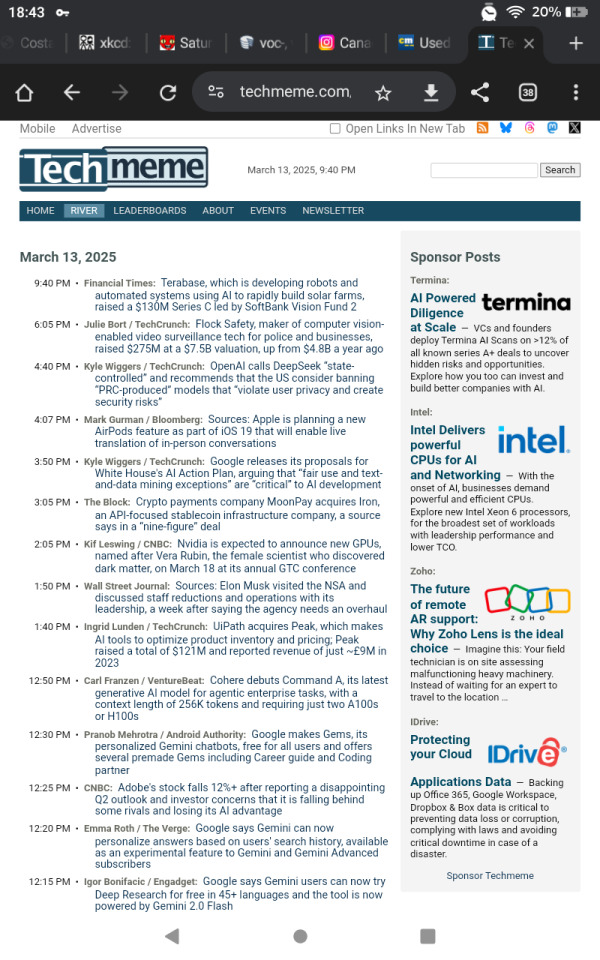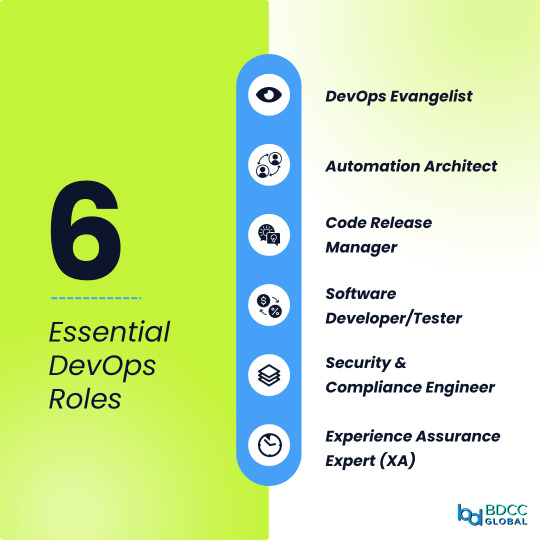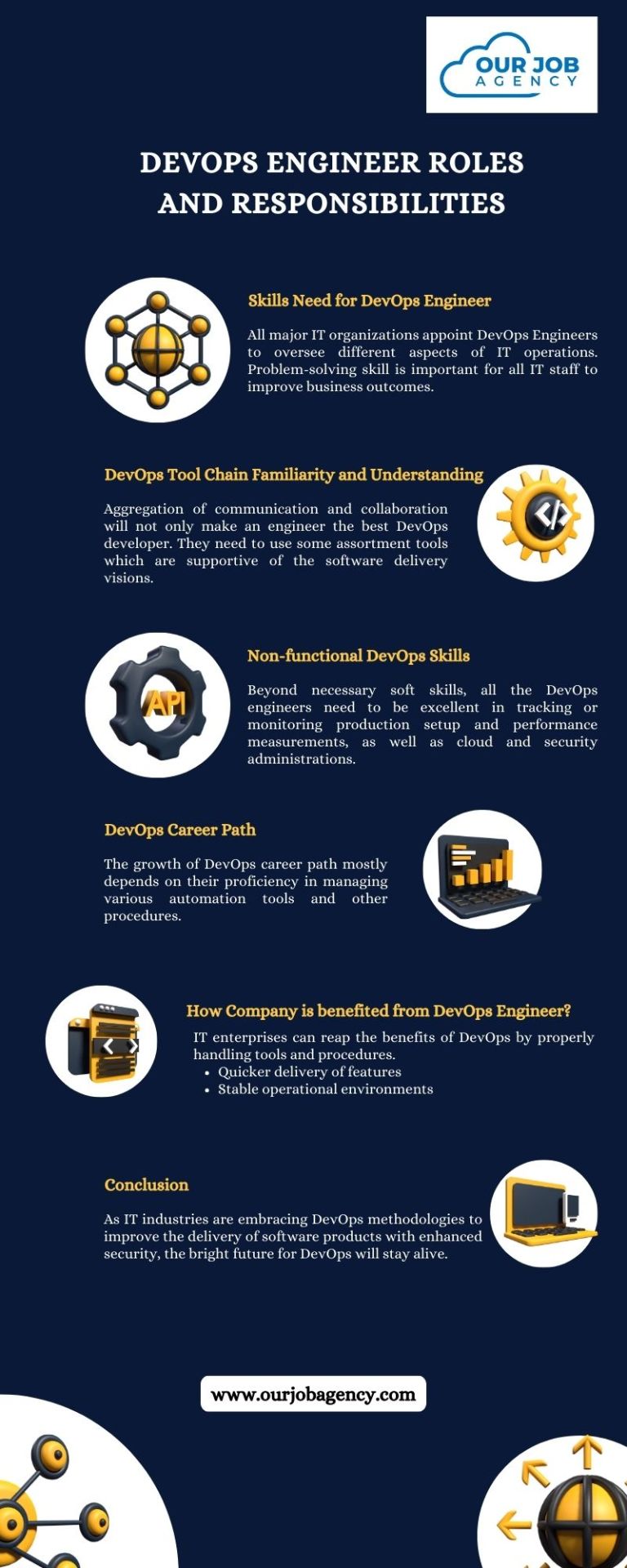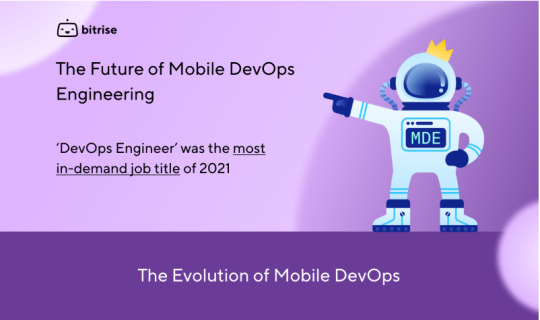#role of devops
Explore tagged Tumblr posts
Text
DevOps in mobile app development streamlines processes from planning to deployment, fostering collaboration, automation, and continuous improvement. It accelerates delivery, enhances quality, and ensures better app performance, ultimately improving user experience.
0 notes
Text

youtube

youtube

youtube

youtube

youtube


youtube

youtube

youtube

youtube
#!36690#PROtoCol. %n#< < negAit.fieLdpD.SPIFF > >#WARN: Multiple conflicts follow:#-DevOps role#-Principal#!!#1. Sends file for payout to ACS (commissions) >10M#2. Provides ODBC access to Accounting:Revenue /Dbl.book#3. Is remote w/o 'home' plant; titled:RSM#Risk Assesment: Yellow#PwC#DT: TMUS
1 note
·
View note
Text
DevOps Hiring Solutions | Build Your DevOps Team with OpsNexa!
Hire top DevOps engineers and specialists quickly and confidently with OpsNexa. Our DevOps hiring solutions are designed to help organizations scale efficiently by providing access to certified, experienced professionals. Whether you need full-time engineers, contract-based experts, or a complete DevOps team, we offer flexible engagement models tailored to your needs. DevOps Hiring With a strong focus on automation, CI/CD, cloud infrastructure, and modern DevOps practices, our vetted talent brings proven expertise to accelerate your software delivery and digital transformation initiatives.
0 notes
Text

Fastest Growing IT Roles in India 2025 Edition
Step into the most in-demand tech careers of 2025 with Evision Technoserve! Explore top career paths such as Cloud Administrator, Cybersecurity Analyst, AI & Data Science Engineer, Full Stack Developer, and DevOps Engineer. Gain real-world experience through hands-on projects and learn directly from industry mentors. Evision’s expert-led training programs are designed to fast-track your IT career with 100% placement assistance. Don’t miss out on exciting internship and job opportunities
#fastest growing tech careers 2025 india evision#trending IT jobs for freshers india 2025#future-proof IT careers for students 2025#high demand IT roles with placement india#cloud administrator training with jobs 2025#cybersecurity analyst course with internship#ai & data science engineer course india freshers#devops engineer training with placement india#evisiontechnoserve#internshipprogram
0 notes
Text
Highest Paying IT Jobs in India in 2025: Roles, Skills & Salary Insights
Published by Prism HRC – Best IT Job Consulting Company in Mumbai
India's IT sector is booming in 2025, driven by digital transformation, the surge in AI and automation, and global demand for tech talent. Whether you're a fresher or a seasoned professional, knowing which roles pay the highest can help you strategize your career growth effectively.
This blog explores the highest-paying IT jobs in India in 2025, the skills required, average salary packages, and where to look for these opportunities.

Why IT Jobs Still Dominate in 2025
India continues to be a global IT hub, and with advancements in cloud computing, AI, cybersecurity, and data analytics, the demand for skilled professionals is soaring. The rise of remote work, startup ecosystems, and global freelancing platforms also contributes to higher paychecks.
1. AI/ML Engineer
Average Salary: ₹20–40 LPA
Skills Required:
Python, R, TensorFlow, PyTorch
Deep learning, NLP, computer vision
Strong statistics and linear algebra foundation
Why It Pays Well:
Companies are pouring investments into AI-powered solutions. From chatbots to autonomous vehicles and predictive analytics, AI specialists are indispensable.
2. Data Scientist
Average Salary: ₹15–35 LPA
Skills Required:
Python, R, SQL, Hadoop, Spark
Data visualization, predictive modelling
Statistical analysis and ML algorithms
Why It Pays Well:
Data drives business decisions, and those who can extract actionable insights are highly valued. Data scientists are among the most sought-after professionals globally.
3. Cybersecurity Architect
Average Salary: ₹18–32 LPA
Skills Required:
Network security, firewalls, encryption
Risk assessment, threat modelling
Certifications: CISSP, CISM, CEH
Why It Pays Well:
With rising cyber threats, data protection and infrastructure security are mission critical. Cybersecurity pros are no longer optional—they're essential.
4. Cloud Solutions Architect
Average Salary: ₹17–30 LPA
Skills Required:
AWS, Microsoft Azure, Google Cloud
Cloud infrastructure design, CI/CD pipelines
DevOps, Kubernetes, Docker
Why It Pays Well:
Cloud is the backbone of modern tech stacks. Enterprises migrating to the cloud need architects who can make that transition smooth and scalable.
5. Blockchain Developer
Average Salary: ₹14–28 LPA
Skills Required:
Solidity, Ethereum, Hyperledger
Cryptography, smart contracts
Decentralized app (dApp) development
Why It Pays Well:
Beyond crypto, blockchain has real-world applications in supply chain, healthcare, and fintech. With a limited talent pool, high salaries are inevitable.
6. Full Stack Developer
Average Salary: ₹12–25 LPA
Skills Required:
Front-end: React, Angular, HTML/CSS
Back-end: Node.js, Django, MongoDB
DevOps basics and API design
Why It Pays Well:
Full-stack developers are versatile. Startups and large companies love professionals who can handle both client and server-side tasks.
7. DevOps Engineer
Average Salary: ₹12–24 LPA
Skills Required:
Jenkins, Docker, Kubernetes
CI/CD pipelines, GitHub Actions
Scripting languages (Bash, Python)
Why It Pays Well:
DevOps reduces time-to-market and improves reliability. Skilled engineers help streamline operations and bring agility to development.
8. Data Analyst (with advanced skillset)
Average Salary: ₹10–20 LPA
Skills Required:
SQL, Excel, Tableau, Power BI
Python/R for automation and machine learning
Business acumen and stakeholder communication
Why It Pays Well:
When paired with business thinking, data analysts become decision-makers, not just number crunchers. This hybrid skillset is in high demand.

9. Product Manager (Tech)
Average Salary: ₹18–35 LPA
Skills Required:
Agile/Scrum methodologies
Product lifecycle management
Technical understanding of software development
Why It Pays Well:
Tech product managers bridge the gap between engineering and business. If you have tech roots and leadership skills, this is your golden ticket.
Where are these jobs hiring?
Major IT hubs in India, such as Bengaluru, Hyderabad, Pune, Mumbai, and NCR, remain the hotspots. Global firms and unicorn startups offer competitive packages.
Want to Land These Jobs?
Partner with leading IT job consulting platforms like Prism HRC, recognized among the best IT job recruitment agencies in Mumbai that match skilled candidates with high-growth companies.
How to Prepare for These Roles
Upskill Continuously: Leverage platforms like Coursera, Udemy, and DataCamp
Build a Portfolio: Showcase your projects on GitHub or a personal website
Certifications: AWS, Google Cloud, Microsoft, Cisco, and niche-specific credentials
Network Actively: Use LinkedIn, attend webinars, and engage in industry communities
Before you know
2025 is shaping up to be a landmark year for tech careers in India. Whether you’re pivoting into IT or climbing the ladder, focus on roles that combine innovation, automation, and business value. With the right guidance and skillset, you can land a top-paying job that aligns with your goals.
Prism HRC can help you navigate this journey—connecting top IT talent with leading companies in India and beyond.
- Based in Gorai-2, Borivali West, Mumbai - www.prismhrc.com - Instagram: @jobssimplified - LinkedIn: Prism HRC
#Highest Paying IT Jobs#IT Jobs in India 2025#Tech Careers 2025#Top IT Roles India#AI Engineer#Data Scientist#Cybersecurity Architect#Cloud Solutions Architect#Blockchain Developer#Full Stack Developer#DevOps Engineer#Data Analyst#IT Salaries 2025#Digital Transformation#Career Growth IT#Tech Industry India#Prism HRC#IT Recruitment Mumbai#IT Job Consulting India
0 notes
Text
The Role of DevOps in Custom Software Deployment

In today’s fast-paced digital ecosystem, the success of any software product is determined not just by how well it's coded, but how efficiently and reliably it’s delivered to end-users. This is where DevOps—the fusion of development and operations—plays a transformative role.
For businesses working with a custom software development company in New York, DevOps is no longer an optional methodology—it’s a competitive necessity. From speeding up deployment cycles to improving reliability, security, and scalability, DevOps practices streamline the entire software delivery pipeline.
In this blog, we’ll explore the critical role of DevOps in custom software deployment, the advantages it offers, and how software development companies in New York are leveraging DevOps to deliver faster, smarter, and more resilient digital solutions.
What Is DevOps?
DevOps is a set of practices and tools that bridge the gap between software development (Dev) and IT operations (Ops). Its primary goal is to shorten the development lifecycle, increase deployment frequency, and deliver high-quality software in a repeatable and automated way.
This is accomplished through key principles such as:
Continuous Integration (CI)
Continuous Delivery/Deployment (CD)
Infrastructure as Code (IaC)
Automated testing
Monitoring and logging
The best custom software development companies in New York integrate these practices into their workflows to reduce downtime, prevent deployment bottlenecks, and foster innovation.
DevOps in Custom Software: Why It Matters
Unlike off-the-shelf software, custom solutions are tailor-made for specific business needs. They require greater agility, flexibility, and ongoing refinement—all of which are supported by a robust DevOps approach.
Here’s why DevOps is especially vital in custom software projects:
1. Faster Time-to-Market
Speed is crucial in today’s competitive digital space. DevOps enables rapid iterations, automated testing, and continuous deployments—ensuring that new features and bug fixes go live faster.
For example, a software development company in New York using DevOps can deliver weekly or even daily updates, significantly reducing the time it takes to respond to user feedback or market demands.
2. Higher Quality Code
Automated testing and code integration tools allow developers to catch bugs early in the development cycle. This leads to fewer production issues and better software quality overall.
The top software development companies in New York use automated quality gates, unit tests, and peer code reviews integrated into the CI/CD pipeline, ensuring every code release meets strict standards.
3. Scalability and Flexibility
As businesses grow, their software needs to scale accordingly. DevOps supports scalability through containerization (like Docker), orchestration tools (like Kubernetes), and cloud-native deployment models.
Working with a custom software development company in New York that understands cloud and DevOps architecture means your software can grow seamlessly with your business needs.
Key DevOps Practices That Support Deployment
To understand the true value of DevOps in deployment, it’s important to dive deeper into the specific practices that make it effective.
1. Continuous Integration (CI)
CI involves automatically merging all developer working copies to a shared mainline several times a day. This enables early bug detection, reduced integration issues, and a smoother development workflow.
Custom software development companies in New York often integrate tools like Jenkins, GitLab CI, or CircleCI to automate builds and ensure code is always in a deployable state.
2. Continuous Deployment (CD)
Continuous Deployment automates the release process so that any code passing all tests is immediately deployed to production. This creates a cycle of fast and reliable releases.
This is particularly useful for industries like fintech or e-commerce, where downtime or bugs can result in serious revenue loss. A software development company in New York using CD can deploy features safely and frequently without compromising performance.
3. Infrastructure as Code (IaC)
IaC allows infrastructure (like servers, load balancers, and databases) to be managed through code, making environments consistent and reproducible. Tools like Terraform and Ansible are widely used.
The best software development company in New York will use IaC to reduce human error, enable version control of infrastructure, and simplify environment replication across dev, test, and production.
4. Monitoring and Feedback Loops
DevOps emphasizes continuous monitoring of application performance and infrastructure health using tools like Prometheus, Grafana, and ELK Stack.
With these insights, custom software development companies in New York can proactively identify issues, analyze usage trends, and optimize applications to improve user experience.
DevOps for Custom Software Clients: What to Expect
When working with a DevOps-enabled software development company in New York, clients can expect the following:
1. Transparent Release Processes
Frequent, scheduled releases replace traditional “big-bang” launches. You’re always aware of what’s being deployed and when, with detailed changelogs and documentation.
2. Reduced Downtime
Through canary releases, blue-green deployments, and automated rollback mechanisms, DevOps minimizes the risk of outages during updates.
3. More Reliable Support
DevOps fosters a culture of accountability. Developers monitor how their code performs in production and fix issues promptly—ensuring a more stable product lifecycle.
4. Custom Dashboards and Metrics
Get real-time visibility into your application’s health, user engagement, and server performance with custom dashboards tailored to your KPIs.
The top software development company in New York will customize these tools for your business model, giving you actionable insights at a glance.
Why DevOps Is a Competitive Edge
In industries like finance, healthcare, retail, and logistics, speed and stability aren’t just nice-to-haves—they're vital. DevOps offers:
Accelerated innovation: Quickly test and implement new ideas.
Enhanced security: Apply security policies and patches faster.
Customer satisfaction: Deliver bug-free features continuously.
Operational efficiency: Automate repetitive tasks to focus on high-value work.
For companies looking to stand out, partnering with a custom software development company in New York that champions DevOps is an investment in agility and excellence.
Choosing the Right DevOps-Enabled Software Partner
Not every software firm embraces DevOps, and not every team does it well. Here’s what to look for:
DevOps toolchain expertise (Git, Jenkins, Docker, Kubernetes)
Experience with cloud platforms (AWS, Azure, Google Cloud)
Track record of CI/CD pipelines
Commitment to security and compliance
24/7 monitoring and support
The best software development company in New York will have proven case studies, client testimonials, and a clear DevOps roadmap that aligns with your vision.
Final Thoughts
DevOps has redefined the way custom software is developed, deployed, and maintained. It promotes agility, reliability, and collaboration—three pillars essential for long-term software success.
In a city as competitive and innovation-driven as New York, choosing the right partner is crucial. Whether you’re a startup disrupting your industry or an enterprise modernizing legacy systems, working with a custom software development company in New York that fully embraces DevOps can give you a decisive edge.
If you want continuous improvement, faster delivery cycles, and robust deployment processes, look no further than the top software development company in New York. They don’t just build software—they deliver future-ready solutions that evolve with your business.
#custom software development company in new york#software development company in new york#custom software development companies in new york#top software development company in new york#best software development company in new york#The Role of DevOps in Custom Software Deployment
0 notes
Video
youtube
How to Enable Multi-Session Access in AWS Management Console
#youtube#AWS Multi-Account Access IAM Identity Center AWS SSO AWS CLI Role Switching AWS Organizations Cloud Management DevOps Tools AWS Tips. AWSA#ClouDolus#cloudoluspro
0 notes
Text
A devops engineer's roles and responsibilities bridge the gap between development and operations teams. They automate processes, manage infrastructure, and ensure seamless deployment and integration. Key responsibilities include monitoring systems, implementing CI/CD pipelines, optimizing workflows, enhancing collaboration, and maintaining security protocols to streamline software delivery and improve overall operational efficiency. Click here to learn more.
0 notes
Text
I got another job offer from Wizards of the Coast (well, interview opportunity). This will be my second time turning them down because I enjoy my current job too much.
Last time it took 6 months for everything at my job to go to hell and for me to severely regret my decision. I swear, if WotC curses this job I am showing up at Garycon with sage.
#I doubt it will but imagine how funny it would be#please don’t though#I severely love this organization#which is the only reason I’m turning down a devops role bc I honestly do kinda miss working with that tech stack#even with the late night calls#I just needed to share because I found this incredibly funny#and now the image won’t leave my head of me chasing around the ghost of Gary gygax#anyway#thoughts
0 notes
Text
Future-proofing Real Estate Tech: The Role of DevOps Solutions
Explore how DevOps solutions are shaping the future of real estate technology in this insightful article. Learn about the vital role DevOps plays in enhancing efficiency, scalability, and innovation within the real estate sector. Discover how embracing DevOps practices can future-proof your real estate tech infrastructure, ensuring agility and resilience in a rapidly evolving industry landscape. Dive into the details of DevOps implementation and its transformative impact on real estate technology.
0 notes
Text

Exploring the heartbeat of DevOps: Dive into the 6 essential roles shaping the landscape.
Uncover the vital positions steering innovation in DevOps.
0 notes
Text
#software#IT roles#software engineering#software testing#cloud computing skills#devops#network administrator#database
0 notes
Text

DevOps is a collaborative methodology, which connects the development and operations teams of an IT company to increase its productivity. Today, each recognized IT company creates a role of DevOps Engineer or developer to make the IT processes so cool and good.
#devops engineer roles and responsibilities#devops engineer role description#devops career path#devops engineer career path#apply devops engineer job#devops engineer job responsibility
0 notes
Text
What Do DevOps Engineers Do? A Comprehensive Overview of Their Role and Responsibilities | OpsNexa!
What exactly does a DevOps Engineer do? This article describes the primary tasks, required skills, What Do DevOps Engineers Do?, and tools that DevOps engineers utilise to automate, integrate, and deploy software. Learn how they bridge the gap between development and operations to create dependable and safe software more quickly.
#What-Do-DevOps-Engineers-Do#DevOps-Engineer-Responsibilities#DevOps-Engineer-Role#DevOps-Job-Functions
0 notes
Text
The Vital Role of Mobile DevOps Engineers
The Vital Role of Mobile DevOps Engineers Mobile DevOps engineering has a very bright future as a potential career option. The most cutting-edge technology is used in this field, and employers have a huge demand for qualified candidates. Due to the rising reliance on mobile applications for both personal usage and daily operations in businesses, the position of Mobile DevOps engineers has become…

View On WordPress
0 notes
Text
How does AI contribute to the automation of software testing?
AI-Based Testing Services

In today’s modern rapid growing software development competitive market, ensuring and assuming quality while keeping up with fast release cycles is challenging and a vital part. That’s where AI-Based Testing comes into play and role. Artificial Intelligence - Ai is changing the software testing and checking process by making it a faster, smarter, and more accurate option to go for.
Smart Test Case Generation:
AI can automatically & on its own analyze past test results, user behavior, and application logic to generate relevant test cases with its implementation. This reduces the burden on QA teams, saves time, and assures that the key user and scenarios are always covered—something manual processes might overlook and forget.
Faster Bug Detection and Resolution:
AI-Based Testing leverages the machine learning algorithms to detect the defects more efficiently by identifying the code patterns and anomalies in the code behavior and structure. This proactive approach helps and assists the testers to catch the bugs as early as possible in the development cycle, improving product quality and reducing the cost of fixes.
Improved Test Maintenance:
Even a small or minor UI change can break or last the multiple test scripts in traditional automation with its adaptation. The AI models can adapt to these changes, self-heal broken scripts, and update them automatically. This makes test maintenance less time-consuming and more reliable.
Enhanced Test Coverage:
AI assures that broader test coverage and areas are covered by simulating the realtime-user interactions and analyzing vast present datasets into the scenario. It aids to identify the edge cases and potential issues that might not be obvious to human testers. As a result, AI-based testing significantly reduces the risk of bugs in production.
Predictive Analytics for Risk Management:
AI tools and its features can analyze the historical testing data to predict areas of the application or product crafted that are more likely to fail. This insight helps the teams to prioritize their testing efforts, optimize resources, and make better decisions throughout the development lifecycle.
Seamless Integration with Agile and DevOps:
AI-powered testing tools are built to support continuous testing environments. They integrate seamlessly with CI/CD pipelines, enabling faster feedback, quick deployment, and improved collaboration between development and QA teams.
Top technology providers like Suma Soft, IBM, Cyntexa, and Cignex lead the way in AI-Based Testing solutions. They offer and assist with customized services that help the businesses to automate down the Testing process, improve the software quality, and accelerate time to market with advanced AI-driven tools.
#it services#technology#software#saas#saas development company#saas technology#digital transformation#software testing
2 notes
·
View notes